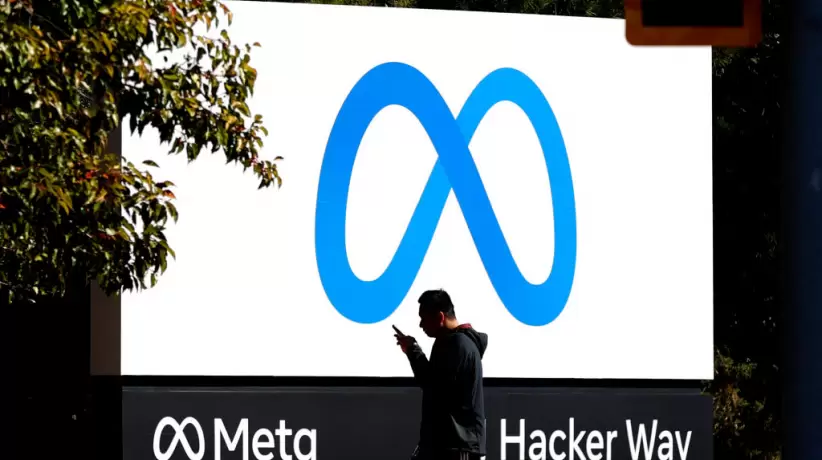It was already rumored that Facebook was considering a name change to more adequately define its different activities and to distance itself from the public scrutiny it has accumulated. CEO Mark Zuckerberg announced in a post that the company would be renamed Meta. “To reflect who we are and the future we hope to build, I am proud to announce that our company is now Goal,” said Zuckerberg.
The ad is reminiscent of Google’s rebranding, when Google became one of parent company Alphabet’s many brands. Zuckerberg appears to be taking the same approach, as Facebook is relegated to one of the company’s many brands – including Instagram, WhatsApp, and Oculus – under the new Meta matrix.
Zuckerberg said the rebrand will allow the company to focus on “the metaverse,” its term for the convergence of visual reality, augmented reality, and in-person reality. “From now on, we will be the metaverse first, not Facebook first. That means that over time you will not need a Facebook account to use our other services. As our new brand begins to appear on our products, I hope that people around the world will get to know the Meta brand and the future we represent. “
Writer Imogen West-Knights writes in The Guardian that “after 17 years, multi-million dollar billing and some minor controversies related to the erosion of global democracy, Facebook has changed its name.” Then, he points out that the Wikipedia page “Criticism of Facebook” has a very long list of content, which includes entries on tax evasion and copyright infringement, even traumatizing its employees and allowing the publication of content that denies various genocides.
According to West-Knights, Mark Zuckerberg and his company have been very busy trying to renew their image, especially in the wake of the platform’s Cambridge Analytica scandal. “This name change probably shows that they are aware that everything has become toxic, and that making noise, as they have done lately, about fact-checking posts and shutting down sources of misinformation is not going to be enough for relationships. public ”.
The writer recalls the long-standing tradition of companies changing their names after a scandal. “The private security company Blackwater changed its name twice to try to dissociate itself from the killing of Iraqi civilians. The tobacco giant Philip Morris renamed himself ‘Altria’, presumably to suggest the concept of altruism and not, for example, terminal lung cancer. “
The presentation of the metaverse of Zuckerberg is described by West-Knights as “one of the most daunting media actions I have ever seen”, where Zuckerberg, looking more humanoid than ever, finds himself in a kind of converted observatory overlooking the sea . “He gestures widely with his hands in that particularly studied, friendly Californian boss way, while explaining that the metaverse will offer users a ‘home space’ with a view to ‘whatever you find most beautiful.’
“I can’t help but associate the Facebook metaverse with a deep, stinging sense of dread,” writes West-Knights, referring not only to the concept itself, but to the fact that Zuckerberg has probably already had enough influence on reality without also adding virtual reality to the mix.
According to the author, the change of the company’s name seems doomed to fail as a maneuver to launder Facebook’s reputation. “Some companies are too big to change brands. No one really remembers that Google’s parent company is now called Alphabet. And some companies are too much – how to say – linked to the deterioration of everything that is good and correct in the world ”.

